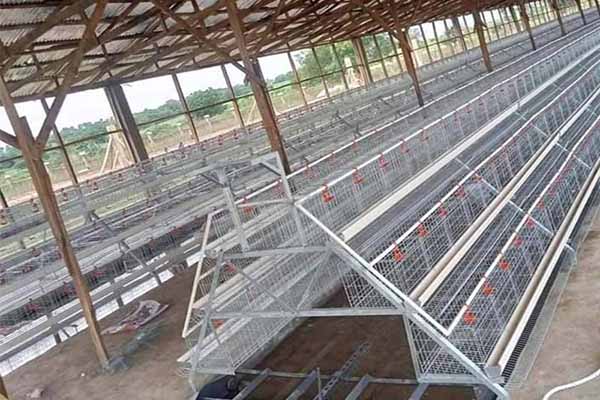How to Start a Chicken Farm for Eggs: A Comprehensive Guide
Time : 2025-07-03
Starting a chicken farm for egg production is a rewarding venture that can be both profitable and satisfying. Whether you’re aiming for a small backyard operation or a large-scale commercial enterprise, understanding the key steps and considerations is essential. In this guide, we’ll delve into how to start a chicken farm for eggs, with a focus on the practical aspects and professional equipment knowledge needed to ensure your success.
1. Market Research and Business Plan
Before you dive into the chicken farming business, it’s crucial to conduct thorough market research and develop a comprehensive business plan.
Market Research:
– Identify your target market: Understand who will be buying your eggs and what they are looking for. Consider organic, free-range, or conventional eggs.
– Analyze competition: Look at local farms and determine what makes your operation different.
– Study market trends: Keep an eye on consumer preferences and dietary trends that could affect your sales.
Business Plan:
– Define your goals: Determine the size of the farm and the number of chickens you plan to raise.
– Cost analysis: Estimate startup costs, including land, buildings, equipment, feed, and labor.
– Revenue projection: Calculate expected income and expenses to ensure the farm is financially viable.
2. Selecting the Right Breed
Choosing the right chicken breed is essential for maximizing egg production and maintaining a healthy flock.
– Layer breeds: These breeds are bred specifically for egg production. Examples include Leghorns, Red Stars, and White Leghorns.
– Diet and environment: Consider the diet and environment your chickens will be raised in when selecting breeds. Some breeds require more feed or specific living conditions.
– Egg color: The most common egg colors are white and brown, but there are also other colors available.
3. Choosing the Right Location
The location of your chicken farm will greatly impact its success.
– Climate: Choose a location that is conducive to the climate you’ll be dealing with. Chickens require a suitable environment, especially during extreme weather conditions.
– Accessibility: Ensure your farm is easily accessible for suppliers, feed, and transportation of eggs.
– Regulations: Check local zoning laws and regulations regarding agricultural activities in your area.
4. Building and Equipment
The infrastructure and equipment you choose will play a significant role in your farm’s efficiency.
– Brooder house: A brooder house is essential for protecting young chicks until they are fully feathered.
– Chicken coops: Coops should provide ample space, protection from predators, and good ventilation.
– Feeding and watering systems: Automatic feeding and watering systems can reduce labor and increase efficiency.
– Roosting bars: Provide perches for chickens to roost at night.
Professional Equipment:
– Automatic feeders and waterers: These reduce waste and ensure that chickens always have access to food and water.
– Egg collection systems: Invest in an egg collection system to automate the process and reduce labor.
– Environmental controls: Use fans, heat lamps, and humidity controls to maintain the optimal environment for your chickens.
5. Feeding and Nutrition
Nutrition is key to maintaining a healthy and productive flock.
– Layer feed: Choose a high-quality layer feed that meets the nutritional needs of your chickens.
– Water: Fresh, clean water should be available at all times.
– Supplements: Depending on your region and the needs of your chickens, you may need to supplement their diet.
6. Health Management
Preventing disease and maintaining the health of your flock is crucial.
– Regular veterinary care: Have a veterinarian who specializes in poultry to conduct regular health checks and vaccinations.
– Sanitation: Maintain good hygiene practices to prevent the spread of disease.
– Biosecurity: Implement biosecurity measures to minimize the risk of pests and diseases entering your farm.
7. Marketing and Sales
Once your chickens are laying eggs, it’s important to market and sell them effectively.
– Direct sales: Consider selling directly to consumers at local farmers’ markets or through a home delivery service.
– Wholesale: If you have a larger operation, you might want to explore selling to restaurants, grocery stores, or wholesalers.
– Branding: Develop a strong brand to differentiate your eggs from competitors.
8. Ongoing Operations and Scaling
Once your chicken farm is up and running, it’s important to continually assess and improve your operations.
– Regular assessments: Review your production, costs, and sales to ensure your farm is meeting your goals.
– Scaling: If your farm is successful, consider how you can scale up without compromising the quality of your eggs or the well-being of your chickens.
Conclusion
Starting a chicken farm for eggs requires careful planning, the right equipment, and a deep understanding of the poultry industry. By following these steps and leveraging professional knowledge, you can establish a successful and sustainable chicken farm.












